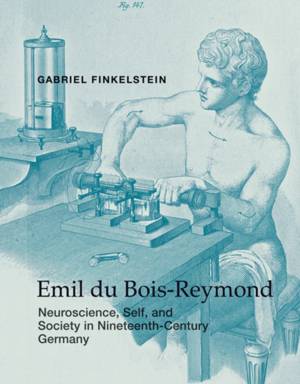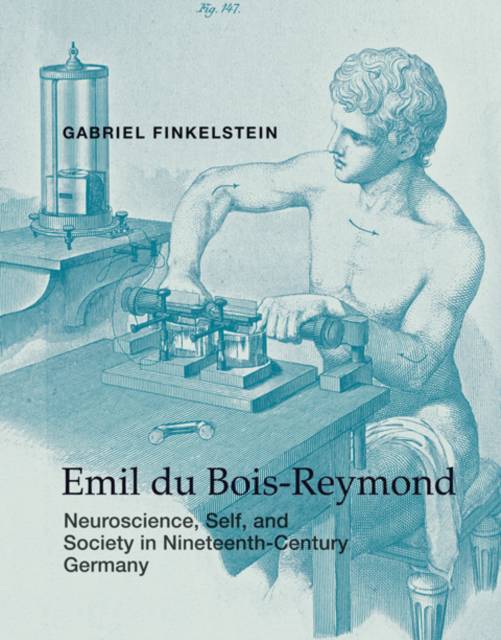
- Afhalen na 1 uur in een winkel met voorraad
- Gratis thuislevering in België vanaf € 30
- Ruim aanbod met 7 miljoen producten
- Afhalen na 1 uur in een winkel met voorraad
- Gratis thuislevering in België vanaf € 30
- Ruim aanbod met 7 miljoen producten
Emil Du Bois-Reymond

Neuroscience, Self, and Society in Nineteenth-Century Germany
Gabriel FinkelsteinPrijzen
Omschrijving
Emil du Bois-Reymond is the most important forgotten intellectual of the nineteenth century. In his own time (1818-1896) du Bois-Reymond grew famous in his native Germany and beyond for his groundbreaking research in neuroscience and his provocative addresses on politics and culture. This biography by Gabriel Finkelstein draws on personal papers, published writings, and contemporary responses to tell the story of a major scientific figure. Du Bois-Reymond's discovery of the electrical transmission of nerve signals, his innovations in laboratory instrumentation, and his reductionist methodology all helped lay the foundations of modern neuroscience.
In addition to describing the pioneering experiments that earned du Bois-Reymond a seat in the Prussian Academy of Sciences and a professorship at the University of Berlin, Finkelstein recounts du Bois-Reymond's family origins, private life, public service, and lasting influence. Du Bois-Reymond's public lectures made him a celebrity. In talks that touched on science, philosophy, history, and literature, he introduced Darwin to German students (triggering two days of debate in the Prussian parliament); asked, on the eve of the Franco-Prussian War, whether France had forfeited its right to exist; and proclaimed the mystery of consciousness, heralding the age of doubt. The first modern biography of du Bois-Reymond in any language, this book recovers an important chapter in the history of science, the history of ideas, and the history of Germany.
Specificaties
Betrokkenen
- Auteur(s):
- Uitgeverij:
Inhoud
- Aantal bladzijden:
- 384
- Taal:
- Engels
- Reeks:
Eigenschappen
- Productcode (EAN):
- 9780262019507
- Verschijningsdatum:
- 1/11/2013
- Uitvoering:
- Hardcover
- Formaat:
- Genaaid
- Afmetingen:
- 184 mm x 235 mm
- Gewicht:
- 775 g

Alleen bij Standaard Boekhandel
Beoordelingen
We publiceren alleen reviews die voldoen aan de voorwaarden voor reviews. Bekijk onze voorwaarden voor reviews.











